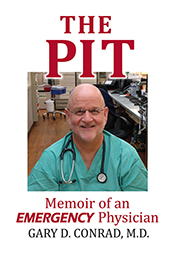Hi Dr. Gary,
What do you believe to be the most important mineral to incorporate into my supplement regimen?
Dawn
Hi Dawn,
First of all, I recommend a daily multivitamin/multimineral to fill in your dietary gaps. In this way, you are less likely to develop deficiencies of any one particular nutrient. While all minerals are important in maintaining wellness, magnesium is especially critical and unfortunately deficient in the diet of up to 50% of Americans.
So, why is magnesium such a big deal? According to the National Institute of Health, magnesium is important for many bodily processes, including regulating muscle and nerve function, blood sugar levels, and blood pressure, as well as synthesizing protein, bone, and DNA.
Realizing its significance, what are the best sources of dietary magnesium? While the list is voluminous, in general, nuts and seeds are excellent choices, as well as legumes, fish (especially salmon and halibut), avocados, whole grains, tofu, bananas, leafy green vegetables (particularly spinach), and raisins. In other words, there exist plenty of delicious, wholesome, magnesium-rich foods available in our American diet, but we oftentimes make dietary selections that are not the healthiest.
When I worked in emergency medicine, I precepted a number of family practice residents, and some of my favorite questions for them were about magnesium. After all, every good emergency physician worth his/her salt loved magnesium, as its therapeutic uses were many, including, but not limited to asthma, pre-eclampsia (a serious hypertensive disorder of pregnancy), migraines, and the the rare, but life-threatening cardiac dysrhythmia, torsades de pointes, first described by French physician François Dessertenne in 1966. What’s not to love about magnesium? Many a life has been saved by its emergent use.
With this in mind, I often quizzed the fledgling physicians with queries such as, “What conditions predispose your patients to hypomagnesemia?” Invariably, I was met with blank stares, and perhaps some futile, stammering attempts to answer. This lack of knowledge certainly wasn’t their fault, though, as sadly enough, medical students and residents are generally taught very little about nutrition. It’s safe to say that the ideas presented in the classic text by Dr. Henry Bieler, “Food is Your Best Medicine,” was not part of their medical repertoire.
“First of all,” I would explain with a knowing look, “if your patients are on diuretics, they will have a tendency to have elevated urinary excretion of magnesium, and thus secondary deficiency. Second, any condition that causes chronic diarrhea, such as Crohn’s disease or ulcerative colitis, can cause stool losses of magnesium. Chronic alcoholics can have hypomagnesemia simply due to poor nutrition. Certain drugs and pancreatitis can also be causative, and finally, diabetics are notoriously deficient in magnesium and other trace minerals because spilling sugar in their urine osmotically depletes them .” I would invariably smile when I answered, as I greatly enjoyed teaching young training doctors, knowing someday the information I gave them might make a difference.
Okay, let’s suppose you have a risk factor for hypomagnesemia, or perhaps your diet is not as nutritious as it should be, and you want to begin a magnesium supplement. If not included in your multivitamin/multimineral, which one should you select? A number of different options are available. Remember that whatever form of magnesium you choose, the possibility exists of a laxative effect, and if such occurs, consider taking a small dose of calcium to counteract it. My preferred magnesium supplement is magnesium glycinate, usually well absorbed and well tolerated, with a close second being magnesium citrate. I would avoid magnesium oxide, one of the most popular varieties, as well as magnesium sulfate (Epsom salts) because of their poor bioavailability and increased likelihood for GI side effects such as diarrhea.
Finally, remember the wise words of Benjamin Franklin: “An ounce of prevention is worth a pound of cure.” The benefits of taking supplemental magnesium far outweigh the risks, and I believe in this situation we should all follow Ben’s advice.
The medical/health information is provided for general educational and informational purposes only, and is not a substitute for personal, professional advice. Accordingly, before taking any recommendations based on the information here, please consult with your primary care provider and/or appropriate professionals.

 Gary D. Conrad
Gary D. Conrad





My husband has one of these risk factors and HBP. I will definitely be encouraging him to take magnesium! Yeah, med school doesn’t teach this stuff.
Hi Liz! It’s always great to hear from one of my medical school pals. I hope that magnesium is of benefit to your husband. Warm regards, Gary
My gastroenterologist recommended I take magnesium. It didn’t occur as to why? And I didn’t ask. I have taken it since he prescribed it. I never knew which kind I should be taking so this is timely for me. Now I know! Thank you.
Hi Marie. I’m happy to help. Best of luck with the magnesium!